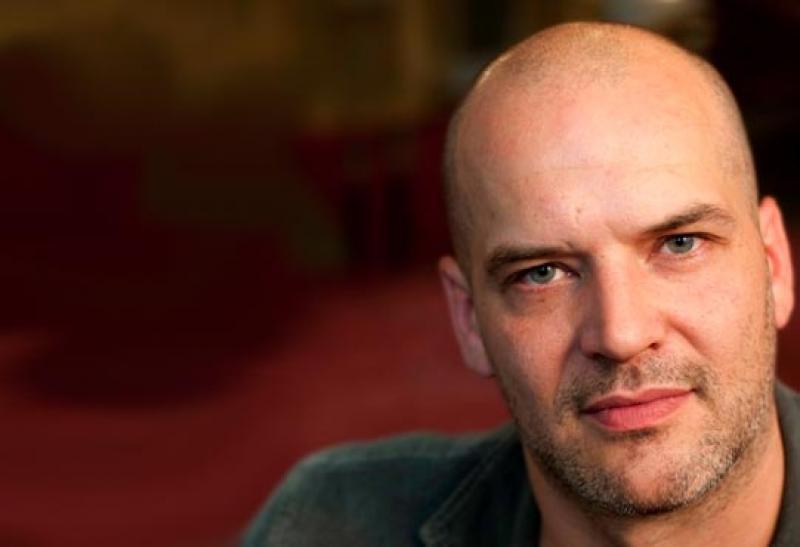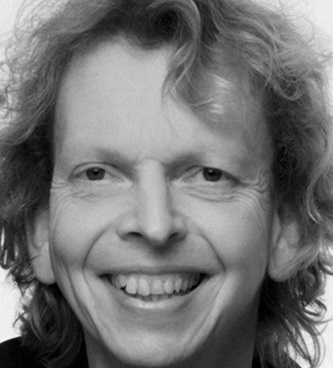Florian Boesch, Justus Zeyen, Wigmore Hall review - power, intimacy and atmosphere | reviews, news & interviews
Florian Boesch, Justus Zeyen, Wigmore Hall review - power, intimacy and atmosphere
Florian Boesch, Justus Zeyen, Wigmore Hall review - power, intimacy and atmosphere
The Austrian baritone is an imposing presence, but expressive and sensual too

Florian Boesch is a big man. He’s tall, stocky, and with his bald head and stubble could seem more like a gangster than a Lieder singer. His voice is beautiful, but it matches his appearance – big, weighty and imposing.
Schubert’s nature-inspired songs are an ideal platform for the more turbulent and dramatic side of Boesch’s temperament. His voice is strongest in the low register, expansive for the stormy vistas of Der Schiffer, but darker and more intense in the forest evocations of Im Walde. He lacks the support required for some of Schubert’s longer lines, or maybe sacrifices it for immediacy and presence.
Boesch has a tone and a mode of delivery for every mood
That was less of an issue in the Wolf songs, six selections from the Mörike-Lieder. Wolf’s style is more aphoristic, and Boesch has a knack for locating the mood of each short number immediately. His colour and delivery here were quite straightforward, his vibrato-less tone offering a conversational immediacy. But it was difficult to gauge his approach to the more devotional songs, Schlafendes Jesuskind and Gebet. Was the simplicity here deliberately naive, or were singer and composer complicit in some subtle irony?
The main work in the programme was Schumann’s Liederkreis, a cycle of Eichendorff settings that run the gamut from isolation and despair to idyllic and Romantically transcendental sensuality. Boesch has a tone and a mode of delivery for every mood. Again, the forest evocations, Waldesgespräch and Im Walde, were particularly atmospheric, though more low key and nocturnal than Schubert’s.
 In fact, everything in this cycle was more distant and opaque than the more directly expressive settings of Schubert and Wolf, and Boesch relished that extra layer of Romantic abstraction. His tone wasn’t always elegant, and, in the nocturnal settings, Mondnacht and Zwielicht, he often drained the colour from his voice: the menacing last of line of Zwielicht, “Hüte dich, sei wach und munter!” (Be wary, watchful, on your guard!), was literally spoken under his breath. For Boesch, the words always come first, clearly articulated and expressed in his native German.
In fact, everything in this cycle was more distant and opaque than the more directly expressive settings of Schubert and Wolf, and Boesch relished that extra layer of Romantic abstraction. His tone wasn’t always elegant, and, in the nocturnal settings, Mondnacht and Zwielicht, he often drained the colour from his voice: the menacing last of line of Zwielicht, “Hüte dich, sei wach und munter!” (Be wary, watchful, on your guard!), was literally spoken under his breath. For Boesch, the words always come first, clearly articulated and expressed in his native German.
In both recital and recording, Boesch is most often heard with accompanist Malcolm Martineau, who was here in the audience. Justus Zeyen (pictured above right, image Andre Rival) is another regular collaborator, and the two clearly have a natural chemistry onstage. I could imagine more poetry and flow from Martineau in this repertoire, but Zeyen was a competent collaborator. He was a little reticent in the Schumann, allowing the sparse figurations to meander.
The Wolf was more convincing, for Zeyen’s ability to weave together the terse harmonies and maintain colour and focus. But he was at his best in the opening Schubert songs, playing with the expressive abandon of a concerto soloist, rightly confident that Boesch would still be heard. Those tempestuous numbers made an excellent opening to this recital, even if the second half revealed Boesch to be more at home in the intimate, twilit world evoked by Eichendorff and Schumann.
rating
Share this article
Subscribe to theartsdesk.com
Thank you for continuing to read our work on theartsdesk.com. For unlimited access to every article in its entirety, including our archive of more than 15,000 pieces, we're asking for £5 per month or £40 per year. We feel it's a very good deal, and hope you do too.
To take a subscription now simply click here.
And if you're looking for that extra gift for a friend or family member, why not treat them to a theartsdesk.com gift subscription?
more Classical music
 Dunedin Consort, Mulroy, Wigmore Hall review - songs of love old and new
First-rate chamber choir explore contemporary and Renaissance approaches to amour
Dunedin Consort, Mulroy, Wigmore Hall review - songs of love old and new
First-rate chamber choir explore contemporary and Renaissance approaches to amour
 Coote, LSO, Tilson Thomas, Barbican review - the triumph of life
A great, ailing conductor rises to Mahler's mightiest challenge
Coote, LSO, Tilson Thomas, Barbican review - the triumph of life
A great, ailing conductor rises to Mahler's mightiest challenge
 Britten Sinfonia, The Marian Consort, Milton Court review - a journey around turbulent spirit Gesualdo
Contemporary homages among the works in this celebration of the Renaissance 'badass'
Britten Sinfonia, The Marian Consort, Milton Court review - a journey around turbulent spirit Gesualdo
Contemporary homages among the works in this celebration of the Renaissance 'badass'
 Classical CDs: Coffee, peppercorns and puppets
A prolific conductor's centenary celebrated, plus Hungarian ballet music and baroque keyboard concertos
Classical CDs: Coffee, peppercorns and puppets
A prolific conductor's centenary celebrated, plus Hungarian ballet music and baroque keyboard concertos
 Gomyo, National Symphony Orchestra, Kuokman, National Concert Hall, Dublin review - painful brilliance around a heart of darkness
A violinist for all facets of a towering Shostakovich masterpiece
Gomyo, National Symphony Orchestra, Kuokman, National Concert Hall, Dublin review - painful brilliance around a heart of darkness
A violinist for all facets of a towering Shostakovich masterpiece
 Sansara, Manchester Collective, Bridgewater Hall, Manchester review - sense of a unique experience
Three world premieres all respond to Feldman’s 'Rothko Chapel'
Sansara, Manchester Collective, Bridgewater Hall, Manchester review - sense of a unique experience
Three world premieres all respond to Feldman’s 'Rothko Chapel'
 Remembering conductor Andrew Davis (1944-2024)
Fellow conductors, singers, instrumentalists and administrators recall a true Mensch
Remembering conductor Andrew Davis (1944-2024)
Fellow conductors, singers, instrumentalists and administrators recall a true Mensch
 Hallé, Wong, Bridgewater Hall, Manchester review - meeting a musical communicator
Drama and emotional power from a new principal conductor
Hallé, Wong, Bridgewater Hall, Manchester review - meeting a musical communicator
Drama and emotional power from a new principal conductor
 Guildhall School Gold Medal 2024, Barbican review - quirky-wonderful programme ending in an award
Ginastera spolights the harp, Nino Rota the double bass in dazzling performances
Guildhall School Gold Medal 2024, Barbican review - quirky-wonderful programme ending in an award
Ginastera spolights the harp, Nino Rota the double bass in dazzling performances
 Queyras, Philharmonia, Suzuki, RFH review - Romantic journeys
Japan's Bach maestro flourishes in fresh fields
Queyras, Philharmonia, Suzuki, RFH review - Romantic journeys
Japan's Bach maestro flourishes in fresh fields
 Classical CDs: Swans, hamlets and bossa nova
A promising young pianist's debut disc, plus Finnish mythology and a trio of neglected British composers
Classical CDs: Swans, hamlets and bossa nova
A promising young pianist's debut disc, plus Finnish mythology and a trio of neglected British composers
 Christian Pierre La Marca, Yaman Okur, St Martin-in-The-Fields review - engagingly subversive pairing falls short
A collaboration between a cellist and a breakdancer doesn't achieve lift off
Christian Pierre La Marca, Yaman Okur, St Martin-in-The-Fields review - engagingly subversive pairing falls short
A collaboration between a cellist and a breakdancer doesn't achieve lift off

Add comment